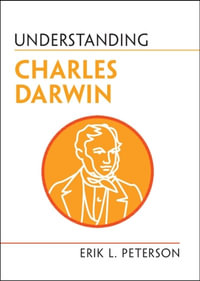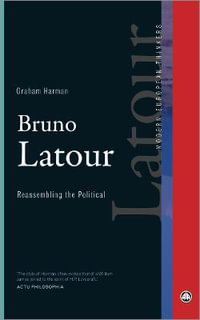Most people believe that science arose as a natural end-product of our innate intelligence and curiosity, as an inevitable stage in human intellectual development. But physicist and educator Alan Cromer disputes this belief. Cromer argues that science is not the natural unfolding of human potential, but the invention of a particular culture, Greece, in a particular historical period. Indeed, far from being natural, scientific thinking goes so far against the grain of conventional human thought that if it hadn't been discovered in Greece, it might not have been discovered at all.
In Uncommon Sense, Alan Cromer develops the argument that science represents a radically new and different way of thinking. Using Piaget's stages of intellectual development, he shows that conventional thinking remains mired in subjective, "egocentric" ways of looking at the world--most people even today still believe in astrology, ESP, UFOs, ghosts and other paranormal phenomena--a mode of thought that science has outgrown. He provides a fascinating explanation of why science began in Greece, contrasting the Greek practice of debate to the Judaic reliance on prophets for acquiring knowledge. Other factors, such as a maritime economy and wandering scholars (both of which prevented parochialism) and an essentially literary religion not dominated by priests, also promoted in Greece an objective, analytical way of thinking not found elsewhere in the ancient world. He examines India and China and explains why science could not develop in either country. In China, for instance, astronomy
served only the state, and the private study of astronomy was forbidden. Cromer also provides a perceptive account of science in Renaissance Europe and of figures such as Copernicus, Galileo, and Newton. Along the way, Cromer touches on many intriguing topics, arguing, for instance, that much of science is essential complete; there are no new elements yet to be discovered. He debunks the vaunted SETI (Search for Extraterrestrial Intelligence) project, which costs taxpayers millions each year, showing that physical limits--such as the melting point of metal--put an absolute limit on the speed of space travel, making trips to even the nearest star all but impossible. Finally, Cromer discusses the deplorable state of science education in America and suggests several provocative innovations to improve high school education, including a radical proposal to give all students an intensive eighth and ninth year program, eliminating the last two years of high school.
Uncommon Sense is an illuminating look at science, filled with provocative observations. Whether challenging Thomas Kuhn's theory of scientific revolutions, or extolling the virtues of Euclid's Elements, Alan Cromer is always insightful, outspoken, and refreshingly original.
Industry Reviews
"I enjoyed reading this book; he makes a good case for the Greek origins of science as a way of knowing."--Linda M. Sweeting, Towson State University
"This is a great book! It will do much to explain what science does to non-scientists."--Tom McCreary, California State University at Chico
"Provocative, insightful, guaranteed to raise the hackles of current "educationists" and parents--as it should!"--William Stern, University of Florida
"I will recommend this book for supplemental reading in my history of medicine and history of biology classes. This book should appeal to students with more than average curiosity."--Professor Lois Magner, Purdue University
"Brilliant...makes a powerful argument for the superiority of the scientific process."--Anchorage Daily News
"I enjoyed reading this book; he makes a good case for the Greek origins of science as a way of knowing."--Linda M. Sweeting, Towson State University
"This is a great book! It will do much to explain what science does to non-scientists."--Tom McCreary, California State University at Chico
"Provocative, insightful, guaranteed to raise the hackles of current "educationists" and parents--as it should!"--William Stern, University of Florida
"I will recommend this book for supplemental reading in my history of medicine and history of biology classes. This book should appeal to students with more than average curiosity."--Professor Lois Magner, Purdue University
"Brilliant...makes a powerful argument for the superiority of the scientific process."--Anchorage Daily News
"Cromer's sprightly montage outlines selected landmarks in human evolution and the history of the sciences, repeatedly demonstrating the difficulty humans have separating egocentric thinking from reality: witness tenacious belief in astrology, ESP, and UFOs. Cromer ranges among philosophies Greek, Judaic, Hindu, Babylonian, and Chinese, but always concentrates on the uniqueness of the scientific revolution--and the constant threat to it of educational
inadequacy. A concise communicator, Cromer is easy on the eyes, harder on the brain."--Booklist
"Cromer nails his thesis against the doors of what he perceives as the current orthodoxies of New Age romanticism, political correctness and multiculturalism, reiterating his view that the core of scientific thinking was a uniquely Western discovery and not a natural development latent in all evolving civilizations. He believes that this 'uncommon sense' is easily overwhelmed by the persistent infantile appeal of such 'magical' explanations of our
observed world as UFOs, the paranormal and crystal channelings. Cromer and colleagues have conceived a science curriculum called SEED (Science Education Experiments & Demonstrations) for students and teachers in
the middle school grades which is worthy of consideration by all educators."--Publishers Weekly
"An excellent book. It is refreshing when a scientist has the courage to declare that there is an outside world, independent of human minds, mathematically structured, and that science is cumulative, always building on past results rather than a series of upheavals such as Thomas Kuhn maintains."--Martin Gardner, author of Gardner's Whys & Wherefores and Fractal Music, Hypercards & More
"A fascinating and innovative interpretation of the scientific enterprise which I found both instructive and enjoyable."--Paul Kurtz, author of Eupraxophy and In Defense of Secular Humanism
























